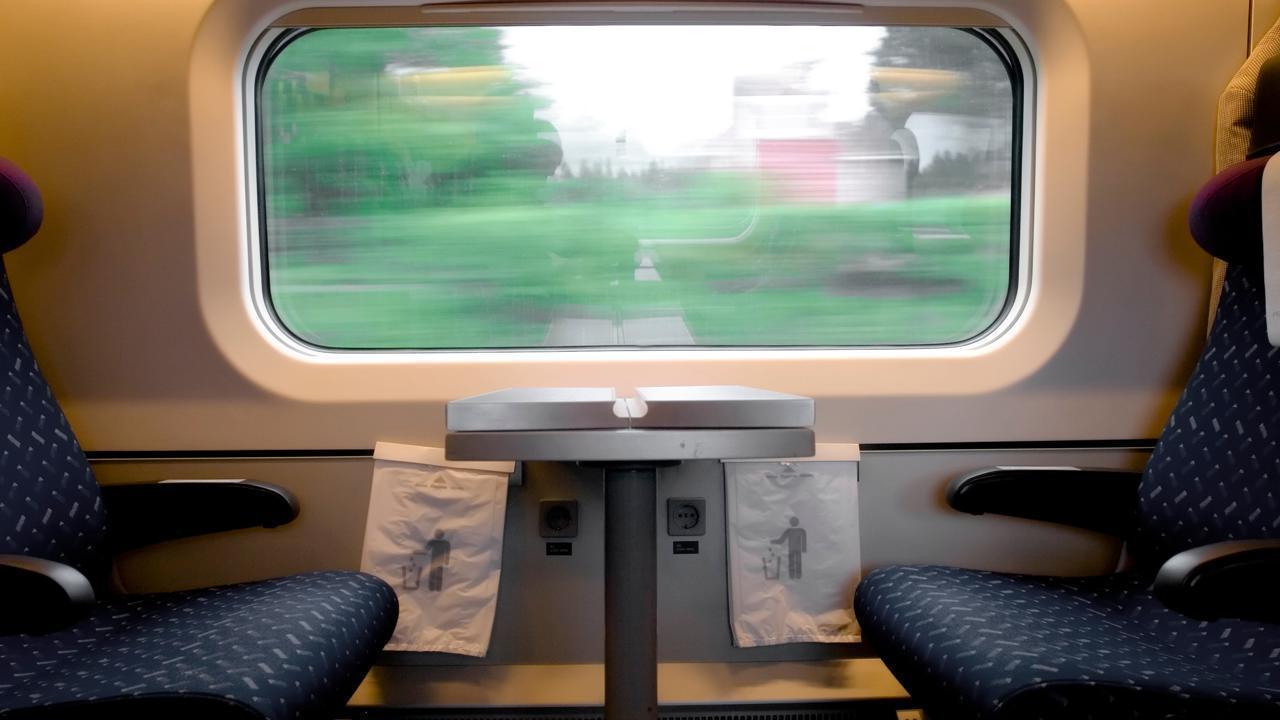
Post by : Amit
Lisbon Trams Embrace Smart Tinting Tech to Enhance Rider Comfort
A high-tech makeover for a century-old icon is now underway on the cobblestone streets of Lisbon. In a move blending history with innovation, the city’s public transport authority, Carris, has begun outfitting its heritage and modern tram fleets with smart window tinting systems aimed at curbing heat and glare during Portugal’s scorching summer months.
This initiative, part of Lisbon’s broader strategy to modernize its urban transit systems while preserving their cultural value, brings adaptive glass technologies to one of Europe’s most photogenic public transport experiences.
Preserving Heritage While Embracing Innovation
The yellow-and-white Remodelado trams of Lisbon have long captured the imagination of locals and tourists alike. Winding through narrow, hilly streets since the early 20th century, these trams are more than just transport—they are cultural ambassadors. But their classic design poses modern challenges, especially when it comes to passenger comfort during peak summer heatwaves.
With interior temperatures inside trams frequently exceeding 40°C during July and August, Lisbon’s transport authorities faced mounting pressure to address passenger complaints over heat and sun glare. However, fully retrofitting the historic fleet with air-conditioning wasn’t feasible due to structural limitations and energy constraints.
That’s where smart window tinting came in—a subtle but powerful solution that doesn’t disrupt the tram’s heritage exterior but revolutionizes the ride experience inside.
How the Technology Works: AI Meets Electrochromic Glass
The installed smart tinting system uses electrochromic glass embedded with thin layers of metal oxides. These layers change opacity when voltage is applied, allowing the glass to transition between clear and tinted states. What sets Lisbon’s implementation apart is the AI-based control system that adjusts tint levels automatically based on external light intensity, internal tram temperature, and passenger density.
During mid-day operations, the glass darkens significantly to block harsh sunlight and UV radiation, reducing cabin temperatures by up to 8°C without active cooling. In the early morning or evening, the tint lightens to allow maximum visibility while still filtering glare.
The system includes manual override panels for drivers to adjust settings if needed and integrates with Carris’s central operations hub for remote diagnostics and software updates.
Trial Results: Lower Cabin Heat, Higher Passenger Satisfaction
Initial trials were conducted on Line 28E, one of Lisbon’s most scenic and tourist-heavy tram routes. Over a 90-day pilot period, smart-tinted trams were monitored for performance, temperature variations, and rider feedback.
Outcomes included:
Passenger interviews conducted during the pilot also revealed a marked improvement in overall satisfaction, especially among tourists unfamiliar with Lisbon’s intense summer sun. Elderly passengers and families with children particularly praised the more “bearable” interiors.
Technical Partners: European Collaboration at Work
The smart tinting upgrade is part of a joint innovation project between Carris, Saint-Gobain Sekurit, and Portuguese R&D lab INL (International Iberian Nanotechnology Laboratory). Saint-Gobain provided the custom electrochromic glass panels, while INL developed the AI-based control algorithms optimized for Lisbon’s specific climate and tram design.
INL’s lead materials scientist, Dr. Beatriz Lemos, noted:
"This project allowed us to test energy-saving innovations on legacy rolling stock without compromising historic design. It’s a balance of tradition and transformation."
From Trams to Buses: A City-Wide Rollout in Sight
Following the success of the tram trials, Lisbon is now considering expanding the smart tinting system to parts of its modern low-floor tram fleet and even select electric buses operating under intense sun exposure in the city’s hilly neighborhoods.
The goal is twofold: to enhance comfort while reducing the carbon footprint of passive cooling systems like fans and auxiliary units. Officials estimate that smart window retrofits could extend the usable service life of older trams while preparing them for Lisbon’s increasingly hot summers—a direct response to climate change.
Lisbon’s Deputy Mayor for Urban Mobility, Miguel Gaspar, praised the project:
"We’re not just preserving history—we’re making it resilient. Smart windows offer a modern answer to an old problem, and one that aligns with our climate and sustainability goals."
Lessons for Europe’s Other Historic Transit Networks
Lisbon isn’t alone in the struggle to modernize heritage transport fleets in a warming world. Cities like Budapest, Milan, and Istanbul all operate aging tram or streetcar systems deeply rooted in their urban identities but plagued by heat and inefficiency.
Smart window technologies offer an elegant solution. Unlike full HVAC retrofits, which often require structural changes and high energy loads, smart glass is lightweight, power-efficient, and visually unobtrusive—making it ideal for historic preservation scenarios.
Analysts from UITP (International Association of Public Transport) have noted growing interest from municipalities looking to future-proof their fleets without erasing their character. Lisbon’s experiment could become a test case for Europe’s broader transit adaptation strategy in the face of climate volatility.
Cost Analysis and Expanded Deployment
While the pilot has drawn praise, cost remains a critical factor in scaling the technology city-wide. Electrochromic glass and integrated AI controls are not cheap—each retrofitted tram costs approximately €45,000–€60,000, depending on the number and size of windows.
Carris is now conducting a full cost-benefit assessment, factoring in potential reductions in maintenance, fan energy use, and long-term passenger health impacts from lower heat exposure. A decision on wider implementation across all tram lines is expected by Q1 2026.
Meanwhile, EU urban mobility grants and climate adaptation funds could help subsidize the rollout. Lisbon has already applied for additional support through Horizon Europe’s Urban Transitions program.
A Window to the Future
Lisbon’s bold step to enhance the humble tram with smart window tinting is a powerful metaphor for urban mobility in the 21st century—one foot in the past, the other charging into a sustainable, tech-enhanced future.
As rising temperatures and climate extremes push cities to innovate, solutions like adaptive glass stand out not only for their immediate utility but for their elegance and respect for legacy infrastructure. For Lisbon’s trams, that means fewer sweaty rides and more scenic journeys—with passengers now shielded from the sun but still steeped in history.
Lisbon, Trams, Public Transport Authority










Advances in Aerospace Technology and Commercial Aviation Recovery
Insights into breakthrough aerospace technologies and commercial aviation’s recovery amid 2025 chall

Defense Modernization and Strategic Spending Trends
Explore key trends in global defense modernization and strategic military spending shaping 2025 secu

Tens of Thousands Protest in Serbia on Anniversary of Deadly Roof Collapse
Tens of thousands in Novi Sad mark a year since a deadly station roof collapse that killed 16, prote

Canada PM Carney Apologizes to Trump Over Controversial Reagan Anti-Tariff Ad
Canadian PM Mark Carney apologized to President Trump over an Ontario anti-tariff ad quoting Reagan,

The ad that stirred a hornets nest, and made Canadian PM Carney say sorry to Trump
Canadian PM Mark Carney apologizes to US President Trump after a tariff-related ad causes diplomatic

Bengaluru-Mumbai Superfast Train Approved After 30-Year Wait
Railways approves new superfast train connecting Bengaluru and Mumbai, ending a 30-year demand, easi